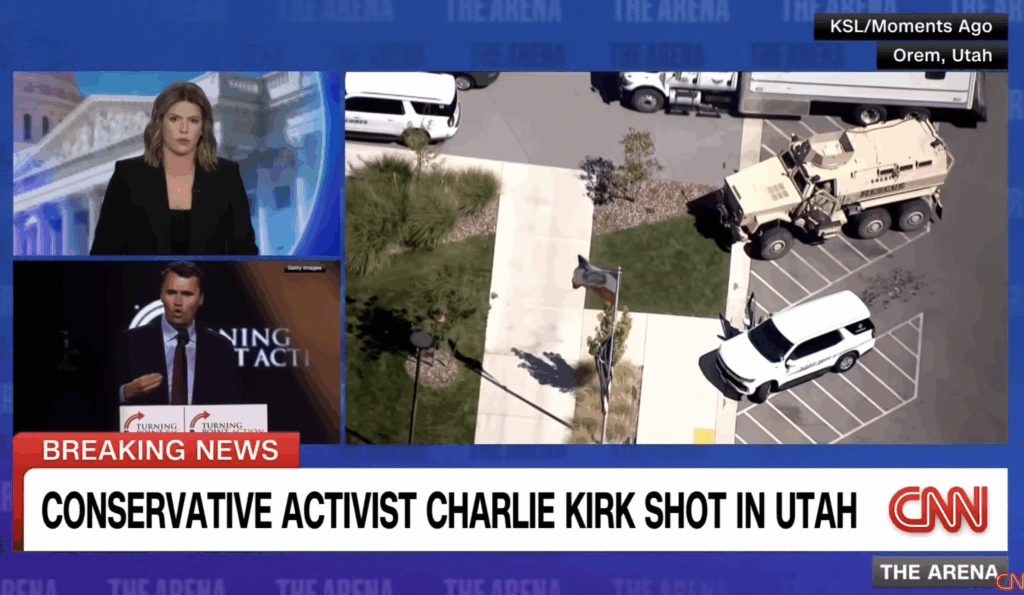The recent death of conservative activist Charlie Kirk has sparked intense reactions on social media, with some individuals expressing disturbing celebrations of the event. Critics argue that the media's portrayal of Kirk contributed to a culture of hatred that may have influenced the actions of his alleged assailant, Tyler Robinson.
Explainer Charlie Kirk Overview
Kirk, a prominent figure in conservative circles and founder of Turning Point USA, was reportedly murdered in a violent incident that has drawn national attention. Utah Governor Spencer Cox quickly addressed the tragedy, suggesting that factors such as "radicalization" through video games and online culture played a role in the crime. He stated, "We need to look at the influences that lead to such acts of violence."
In the aftermath, messages exchanged between Robinson and a roommate indicated that Robinson felt justified in his actions due to what he perceived as Kirk's hatred. Robinson reportedly said he had "had enough of [Kirk’s] hatred. Some hate can’t be negotiated out."
Supporters of Kirk argue that the media has perpetuated false narratives about him, painting him as a figure of hate rather than a proponent of free speech and debate. They contend that this portrayal has dangerous implications, as it can dehumanize individuals and lead to violence.
Kirk's supporters point to a history of media misrepresentation, including claims that he advocated for extreme measures against marginalized groups. Critics of the media, including Hans Mahncke, an attorney and commentator, argue that the relentless targeting of Kirk has created a toxic environment. Mahncke stated, "The media and its enablers are the architects of this hatred. They condition people to see fellow Americans as Nazis rather than citizens to be debated."
The media's framing of Kirk has been scrutinized, particularly following his death. For instance, The New York Times faced backlash for an obituary headline that labeled him a "provocateur," implying he somehow provoked his own assassination. Although the headline was later edited, the original wording remains in the article's metadata, leading to concerns about its long-term impact on public perception.
Kirk's death has also reignited discussions about the broader implications of political rhetoric in America. Critics argue that the normalization of extreme comparisons, such as likening political opponents to Hitler, fosters an environment where violence is seen as a viable solution.
In the context of Kirk's assassination, the media's role in shaping public opinion is under scrutiny. Some commentators have suggested that the relentless repetition of falsehoods about Kirk, including accusations of white supremacist ideals, has contributed to a dangerous narrative that justifies violence against him and others with similar views.
As the investigation into Kirk's death continues, the discourse surrounding it highlights the need for accountability in media reporting and the potential consequences of inflammatory rhetoric. The ongoing debate raises critical questions about how political figures are portrayed and the responsibility of media outlets in shaping public perception.
In light of these events, many are calling for a reassessment of how political discourse is conducted in the United States. Advocates for change argue that fostering a culture of respectful dialogue is essential to preventing further violence and ensuring that differing viewpoints can coexist peacefully.
The legacy of Charlie Kirk, both as a political figure and as a symbol of the current cultural divide, will likely continue to provoke discussion and reflection in the months to come.
Why it matters
- Charlie Kirk's death has ignited a national debate on media responsibility in shaping public perception and its potential link to violence.
- Critics argue that the media's portrayal of Kirk as a figure of hate may have influenced his alleged assailant's justification for violence.
- The incident highlights the dangers of extreme political rhetoric and its normalization, raising concerns about the implications for future discourse.
What’s next
- Investigations into Kirk's murder are ongoing, with a focus on the alleged assailant's motivations and influences.
- Calls for media accountability and a reassessment of political discourse are gaining traction among advocates for respectful dialogue.

